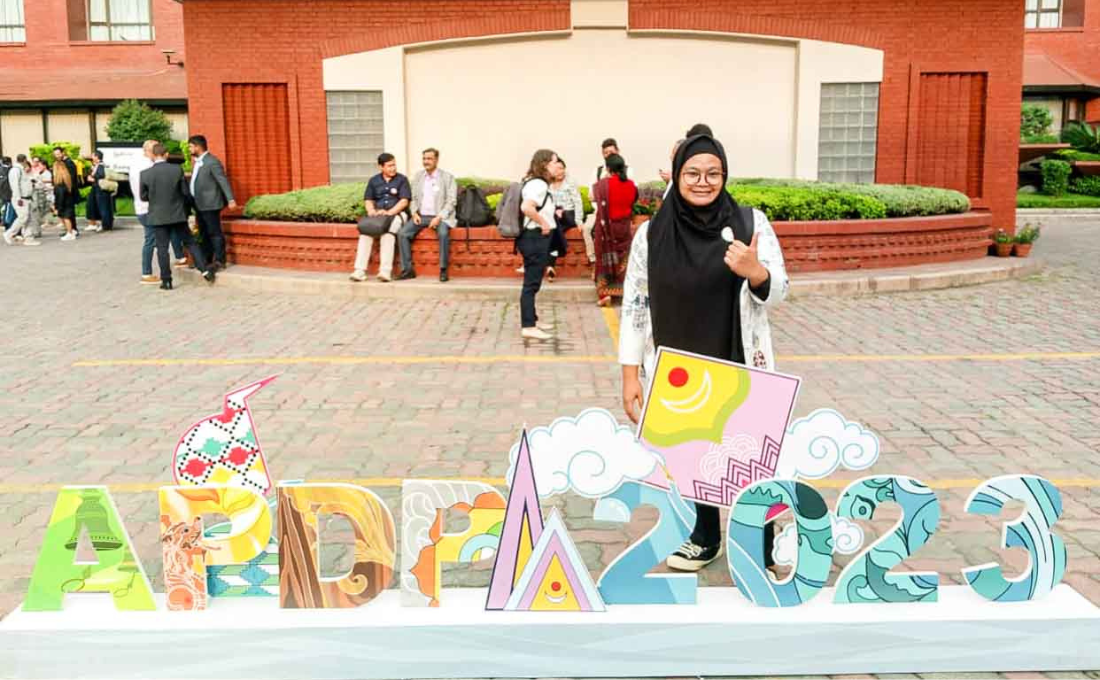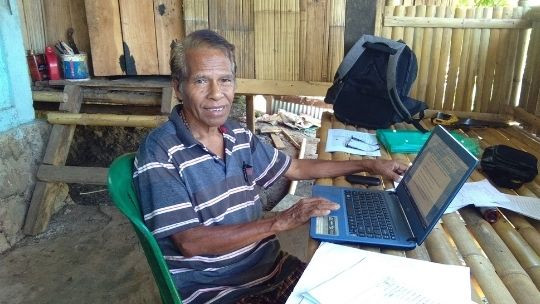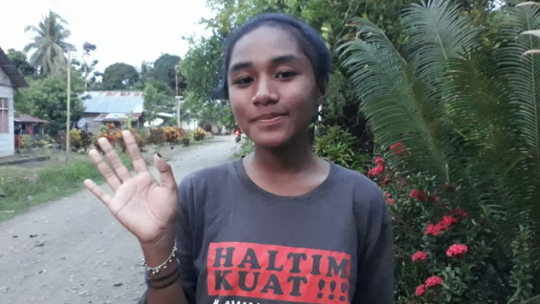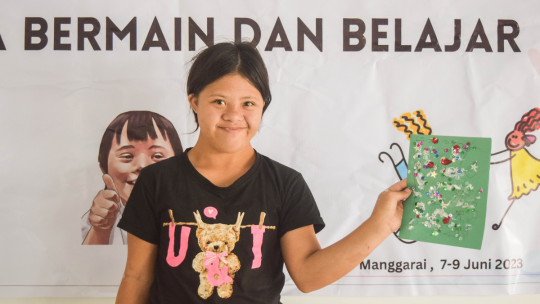Woman with Disabilities Race a Voice at International Level

Ratna Sari, a physically disabled person, never imagined herself to be a guest speaker at an international event. She is just a woman who works in a restaurant. She lives in one of the densely populated and flood-prone neighborhoods in Jatinegara, East Jakarta. However, in June 2023, she shared the good practice of developing a participatory, inclusive Anticipatory Action plan in her neighborhood. She represented Indonesia at the 7th Asia Pacific Dialogue Platform on Anticipatory Action held in Kathmandu, Nepal.
As a guest speaker in a talk show at the event, she shared her experience and knowledge about the importance of active participation in the preparation of anticipatory actions activities, especially for people with disabilities. She also expressed her appreciation for being involved in the implementation and decision-making process of anticipatory actions in her neighborhood. Moreover, this is the first time she has been actively involved in activities in the village.
"Anticipatory action activities always involve all levels of society, including high-risk communities, so that we can directly know the early actions set, the agreed evacuation routes, the flow of early warning information provided, and so on," Ratna said.
According to Ratna, one of the challenges faced during anticipatory actions is evacuation. With small roads, crowded houses affected to narrow evacuation routes and gathering points. This makes it difficult for residents to evacuate. Not to mention if the evacuated person has to use mobility aids that take up space.
This area is also located in the low-land, making them highly vulnerable to flooding. When it rains heavily or the neighboring rivers overflow, the area is often flooded. This situation is also influenced by the topography of the area, which is located side by side with the Ciliwung River. Flooding has become something that local residents take for granted. Therefore, the community's preparedness must not slacken because flooding is always a risk that can easily turn into a threat and danger.
Ratna hopes that in the future, anticipatory action plans will be socialized more. Especially to high-risk groups so that they can better understand and be confident to engage in disaster risk reduction activities in the neighborhood.
WVI supports these activities through the ANTICIPATION project, in collaboration with ADH, a German funding agency. The project was implemented over 15 months in two areas, East Jakarta and Alor District, East Nusa Tenggara. In addition to facilitating communities in the preparation of early action, this project also emphasizes participatory and inclusive aspects. This is an important part because children, women and people with disabilities are the most vulnerable groups during a disaster.
"Hopefully in the future, participation can be more inclusive by involving sign language interpreters or other access support in socialization or training activities," Ratna hoped.
Writer: ANTICIPATION project team member
Editor: Mariana Kurniawati (Communication Executive)



